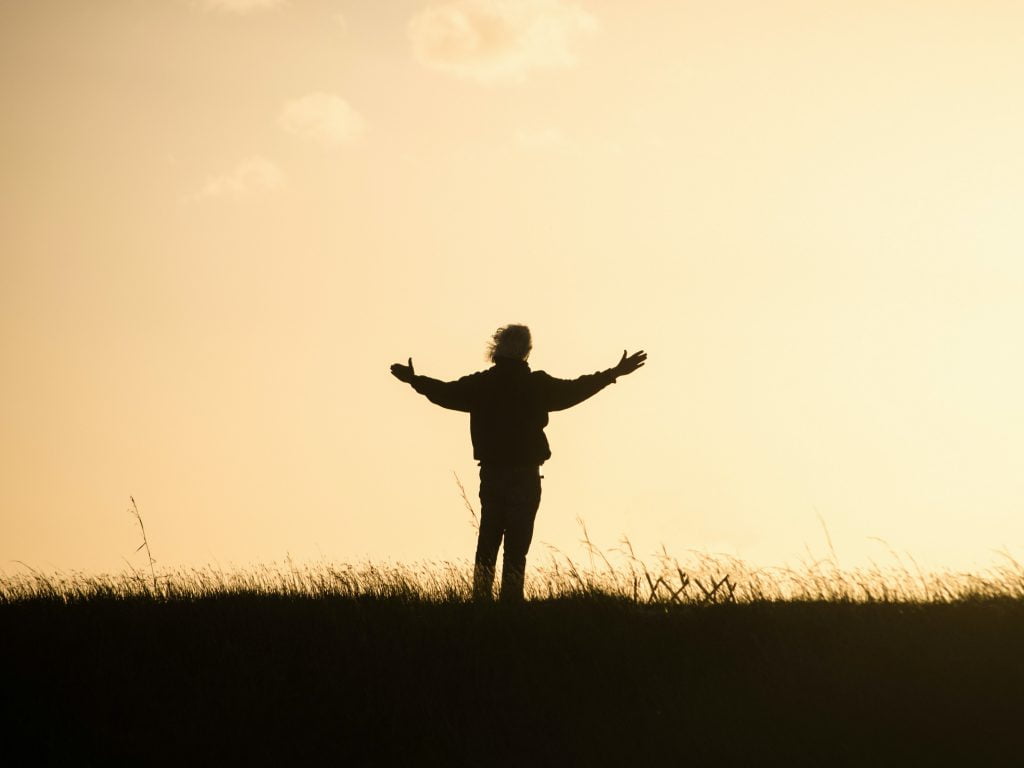What Is Gratitude & Why Do I Need It?

Contents
“Why is this happening to me?” we sometimes find ourselves wondering. “What did I do to deserve this?” The simple fact about life is that it’s not always apparent why something is happening a certain way. Life isn’t always a walk in the park. It’s more like a roller coaster ride: you have your ups and downs. Sometimes, you’re ready to get off and be on solid ground, but the ride just keeps on going, throwing you from side to side. Sometimes it can feel like your troubles just won’t let up and like the walls are caving in — even if they aren’t. Our struggles do not make up the whole of our lives, although it can be hard to realize that when we’re in the middle of them. Recognizing this requires a skill that we’re quick to forget: gratitude.
What Is Gratitude?
The Yale Center of Emotional Intelligence defines gratitude as “a state of mind that arises when you affirm a good thing in your life that comes from outside yourself, or when you notice and relish little pleasures.” Put simply, gratitude is noticing the good things that happen to us, the good things others do for us or just noticing the pleasant things that we come across throughout the day. This is why we can practice gratitude at any time we choose. We can look at someone we love and think of how grateful we are to have them in our lives. We can catch a glimpse of the wide-open sky and be grateful that we can experience its momentary beauty. We can take a sip of tea and savor the taste. We can take a deep breath and give thanks for being healthy. In all of these actions of gratitude, we take a moment to appreciate something we generally take for granted.
Gratitude During Difficult Times
The curious thing about gratitude is that we can practice it even when we’re going through something difficult. Let’s say we’ve run into unexpected financial troubles and we’re feeling very worried and unsettled about the future. We might try to offset this stress by making plans and calculations around our finances. We may be completely consumed by our worries and need to control that we completely forget about the moment we’re in.
Pause. Take a deep breath. Where are you right now? Do you have a roof over your head? Are you in a safe place? Do you have people that love you and support you? Are the people you love safe and well? So much of the pain and frustration we feel from the circumstances we experience stems from how we perceive and react to those circumstances. By remembering to express gratitude in the midst of these situations, we can refocus our attention and adjust our perspective. We can make ourselves see that things aren’t as bleak as we thought. That’s not to say that we should ignore the situation we’re in. We simply adjust our outlook on it.
Gratitude has the power to transform our lives without changing any of our conditions.
How Gratitude Benefits Your Health
Practicing gratitude on a consistent basis is proven to have positive impacts on our overall health. When we practice gratitude, we directly tap into positive emotions, such as wonder, joy and peace of mind. These emotions soothe and reduce the intensity of negative emotions such as jealousy, bitterness, or envy. So, the more we practice gratitude, the less we ask questions like “Why is this happening to me?”, “Why don’t I have this or that?”, or “I deserve that more than them.” Such questions and comments that creep into our minds only pull us further away from living a life with integrity and which fosters peace of mind and fulfillment.
Focusing our attention more on the positive aspects of every situation, and shifting it slowly away from those negative comments, judgements and questions helps us decrease our risk of depression and anxiety. Emotions like joy, love and enthusiasm have positive effects in our bodies. Therefore by actively trying to focus on the experiences and aspects of our lives that make us feel those emotions, we enjoy those health benefits. We become more resilient and are better able to manage our stress, anxiety, and depression, all of which can weaken our immune systems of a long period of time.
How Can I Practice Gratitude?
Gratitude isn’t a randomly occurring emotion. It’s something we must actually seek out on a daily basis and train like a muscle. At first it may seem forced and a bit unnatural, yet as you continue to focus on what you have to be grateful for, it becomes easier and easier, day by day.
There are a couple of ways we can practice gratitude regularly. One way is through practicing mindfulness meditation or yoga. During such exercises, we are forced to actively pay attention to our sensations, feelings, thoughts, and surroundings. We are guided toward thoughts of the people and things we have in our lives; we come to notice the value all of these contribute to our everyday lives. During meditations, these emotions and thoughts become amplified and we learn how to tap into those emotions on our own throughout the rest of our day. It can be for as little as 5 minutes up to an hour or more; yet just by taking that time to pause and pay attention, we’re closer and closer to understanding the transformative impact of gratitude.
Meditations focused specifically on gratitude take this a step further. These meditations help us focus on the good things in our lives. They draw our attention to acts of kindness from our friends. They make us notice just how our family and loved ones support us. We begin to notice even the simplest and smallest of acts and gestures that have brought us joy and warmth in our lives. We may even feel prompted to give thanks for those acts, further strengthening our bonds among our loved ones. .
Expressing our gratitude is another excellent way of furthering the practice we’ve cultivated in our meditations. What’s more, it lets our loved ones know that they are loved and valued. This fosters the connection between us and helps us create a feeling of safety, trust, and comradery among us. Think back: When was the last time a person in your life helped you in some way? When was the last time you expressed genuine gratitude to the people in your life, either for the things they did or simply for being there by your side? How would it feel to reach out to them, even over a message, and just tell them you’re grateful for them.
One of the last ways of practicing gratitude that we’ll cover is through writing. Writing down the things that we’re grateful for is an excellent way of organizing our thoughts and seeing right there before you, everything that you feel thankful for. By writing it out, we can begin to make sense of what we’re thinking. What’s more is we can elaborate and reflect on our thoughts and perhaps even use them to create a new frame for whatever situation we’re in. It’s also a very interesting exercise to look months or even years back into your journals and see what and how you were thinking at the time.

Gratitude as a way to transform your life
Gratitude has the power to transform our lives without changing any of our conditions. Whether it’s through yoga and mindful meditation, expressing our thanks to our loved ones, or writing down what we feel thankful for, by taking little steps to make gratitude a natural part of our everyday routine, we will invite positive change and peace of mind to come into our lives.
Meditopia offers a series on Gratitude which serves as a way of beginning to learn how to focus on gratitude. As always, we would love to hear what you do to welcome gratitude into your daily routine.

